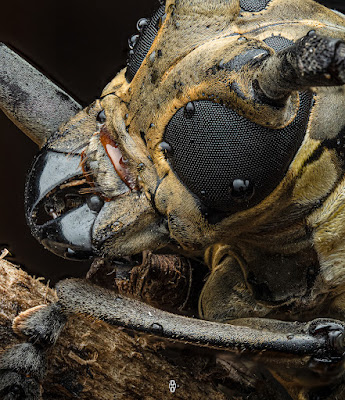Sh*tty Things about Invisible Disabilities
Disclaimer: Unless all you plan to do when you learn something new is express guilt and shame instead of doing better (talking instead of walking), there's no use or need for guilt or shame here. This is a judgement-free zone where we should have no fear of being honest and vulnerable if not with others, with ourselves. We would not condemn a toddler for not knowing how to regulate their frustration over wanting to but being unable to tie their own shoes and sooner than than we would condemn a photographer for not knowing how to fix the motor on a cruise ship or a rocket scientist for not knowing how to make perfect puff pastry. This post comes from a place of encouraging empathy and respect, and we ask that you adopt our no fear, no guilt, no shame policy.
Imagine, if you will, a woman walking confidently across a parking lot. She's dressed nicely, hair and make-up done, smiling as she talks to someone on the phone. She effortlessly throws several bags of groceries in the boot before hopping in the drivers' seat of a car that you notice happens to be parked in a handicapped spot. You can see the parking placard dangling from the rearview mirror indicating that the vehicle is legally allowed to park there, but see no one hobbling to the car needing assistance, and no one waiting at the curb to be picked up. The woman cranks her music up and pulls away without an apparent care in the world.
~~~
The term "ableist" gets thrown around a lot, but what actually is ableism? People are generally aware of what most "isms" look like when someone's words or actions are intentionally discriminatory. Most people would cringe hearing someone say, "We don't hire people with XYZ (boobs, different skin, hearing difficulties, different political or religious views) and refuse to make accommodations because it's expensive/inconvenient/unnecessary/uncomfortable."
But "ist" thinking is more subtle. In the world of EDI, manifestations of "ist" thinking fall under the category of what is known as unconscious bias - beliefs and assumptions so deeply embedded in our psyche that we are not even aware we have a bias until and unless it's pointed out. Before the imaginary able-looking woman drove away, apparently without a care in the world, be honest with yourself: were you irritated? Angry? Outraged? What were the first thoughts that flashed through your mind? And what are the chances that a member of the general public (or you...) shot a dirty look, made a snide comment under their breath, or confronted her?
Now I would like you to imagine how would those thoughts change if you knew the woman without a care suffers from Multiple Sclerosis and was having one of those rare "good days" where she could do her own shopping without the unpredictable symptoms of her disease striking her down with slurred speech, intense fatigue, dependence on a wheelchair, loss of bowel control, and more. That would make this woman would be one of millions who suffer from debilitating but invisible mental and physical diseases who face a litany of sh*tty judgment, comments, questions, and challenges not because of their diagnosis but because of sh*tty people who feel entitled to an explanation or an opinion.
Thankfully, no one (other than the government) asks people to prove their disability or justify accommodations they may require. Missing, under-, or over-developed body parts and conditions with attributes such as the distinct craniofacial features of a person with Down Syndrome are pretty much indisputable. Likewise, using a wheelchair, wearing a hearing aid or cochlear device, or sporting a diabetes monitor provide obvious clues to the location, type, and severity of a person's abilities and challenges, while tics like those suffered by people with Tourette's and Parkinson's and seizures like those caused by epilepsy are difficult to dispute or ignore.
Next, imagine being asked by your boss, colleague, or a new acquaintance to whip out your colostomy bag or prosthetic eye. Imagine being told you're not deaf or blind... enough... yet... Imagine having dyslexia or a learning/processing disorder or being on the Autism spectrum and being told to just try harder. Imagine suffering from chronic fatigue or pain and being told it can't be that bad so you should just get out of bed. Imagine having a "good" MS day and being accosted by a stranger in the parking lot who thinks someone who appears "able-bodied" using a handicapped spot is nothing but a swindler trying to somehow "game the system."
Now, imagine if you will, having a mental health issue like schizophrenia, bipolar disorder, or chronic or severe episodic anxiety or depression and multiply that by the stigmatisation that causes people to lie, hide behind masks, and question their own feelings and perceptions of reality. Perhaps this will enable you to understand the challenges people like this month's Shooting Range "Nature Pill" Challenge Guest Judge Shane Turgeon faced in the months leading up to hitting critical mass and suffering a nervous breakdown that left him curled up in the foetal position and not wanting to carry on.
The sh*tty reality is that people with "invisible disabilities" suffer from ableist bias. There's good news, though. The wonderful thing about learning we have an unconscious bias is that once it becomes conscious, it becomes something we can address. We can learn to second-guess our reactions, evaluate our assumptions, and measure those against our known (or suspected) biases.
What have you noticed about your own understanding of bias through reading this article?



Comments
Post a Comment